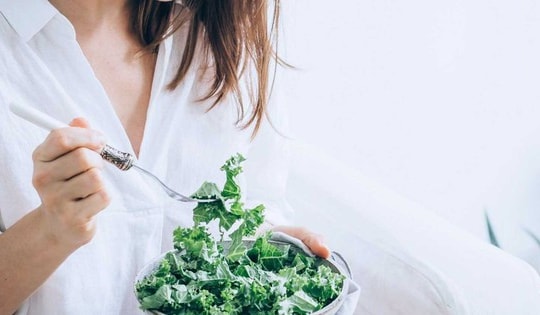Where to find vitamin K?
If you get nosebleeds easily, bruise your limbs easily, or bleed when brushing your teeth, then the cause may be a vitamin K deficiency.
 |
| Photo: Shutterstock |
Vitamin KVitamins are not synthesized by the body, so they need to be supplemented from other sources, specifically food.
Green vegetables: Green leafy vegetables are known to be a good source of antioxidants, iron, fiber, and are also rich in vitamin K. Kale, spinach, collard greens, and lettuce are rich in vitamin K, which the body needs.
Blueberries:High in fiber and phytonutrients, blueberries are also rich in vitamin K1. This vitamin helps blood clot and is also beneficial for bones.
Healthy fats:One tablespoon of soybean oil contains 20 to 27 micrograms of vitamin K, while other vegetable oils contain only 2 to 4 micrograms. Mayonnaise and margarine are also rich in vitamin K.
Herb: Green herbs not only have antioxidant properties, delaying the aging process, but also contain a lot of vitamin K. For example, 100 grams of parsley contains 164 micrograms of vitamin K, and basil contains 410 micrograms.
Fermented soybeans:Natto, made from fermented soybeans, is a popular food in Japan. It is also an excellent source of vitamin K, as 500 mg of natto contains over 100% of the recommended daily intake of vitamin K.
Spring onion:Containing a lot of vitamins and minerals, green onions help supplement the body with vitamin K. Not only that, green onions also contain protein, fiber, vitamin C and vitamin B.
Chili powder:According to Livestrong.com, chili powder is rich in vitamin C, vitamin A, vitamin K, potassium, selenium, phosphorus, calcium, and zinc.
Carrot:One medium-sized carrot contains 10% of the vitamin K your body needs daily.
Cereal:Cereal foods contain small amounts of vitamin K. Sandwiches, biscuits, hamburgers... have from 1 - 11 micrograms of vitamin K per 100 grams.
According to TNO
| RELATED NEWS |
|---|


